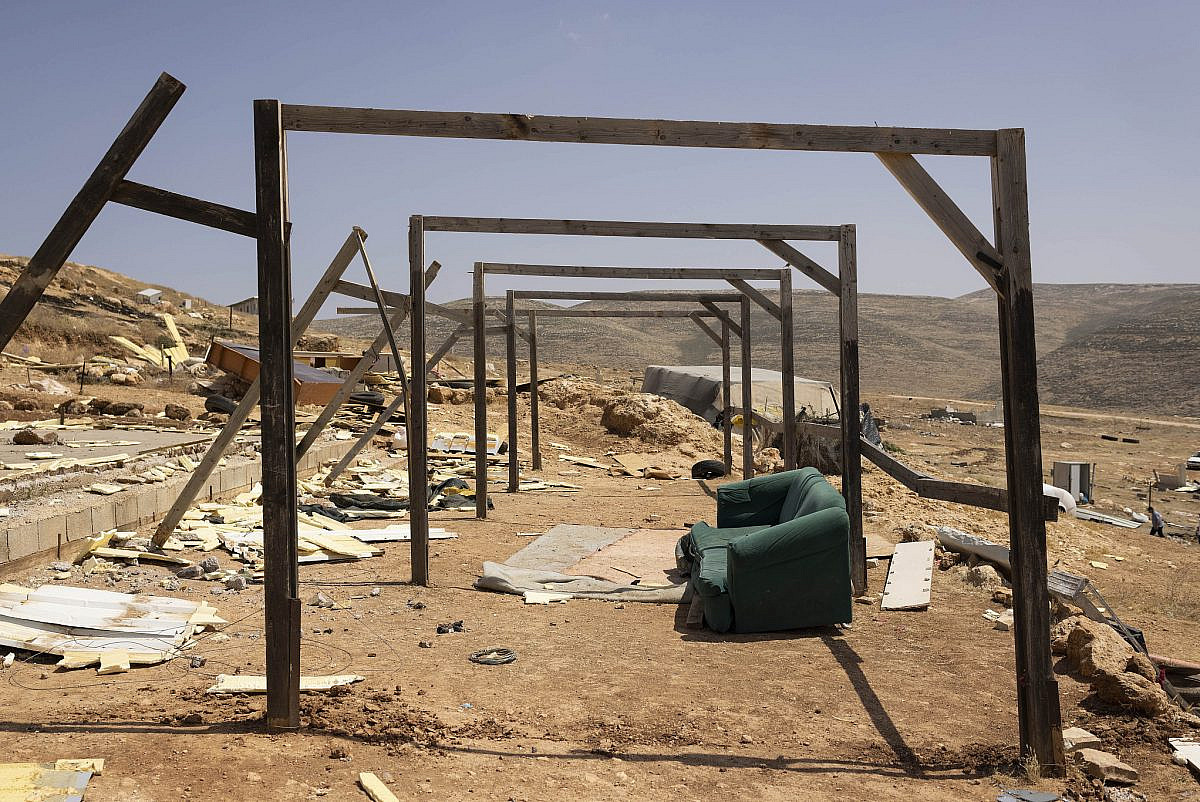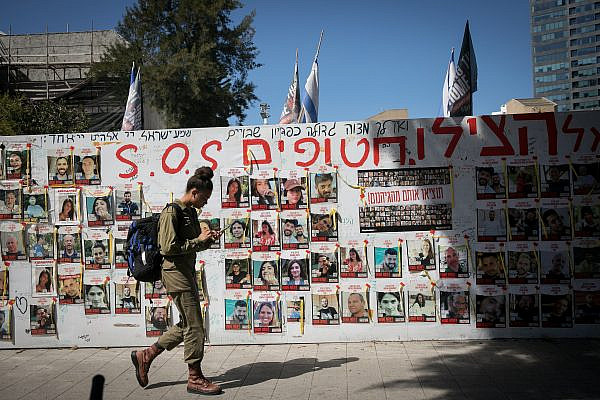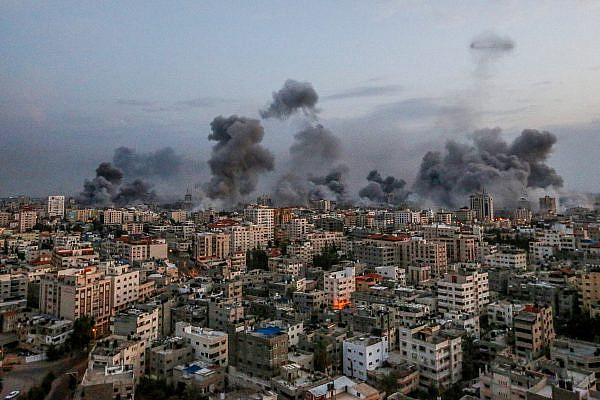The 27 Palestinian families who lived in the small village of ‘Ein Samia, located northeast of Jerusalem in the occupied West Bank, finally made the painful decision to leave their homes of more than 40 years after months of escalating Israeli settler violence. Some of the families said they were moving west to the village al-Majeer, while others told +972 they didn’t yet know where they were going.
On Tuesday, in the now depopulated village, I saw dozens of residents, most of them women, under the blazing sun, destroying their houses with their own hands. I had never witnessed anything like it, and I wasn’t sure what to say to them.
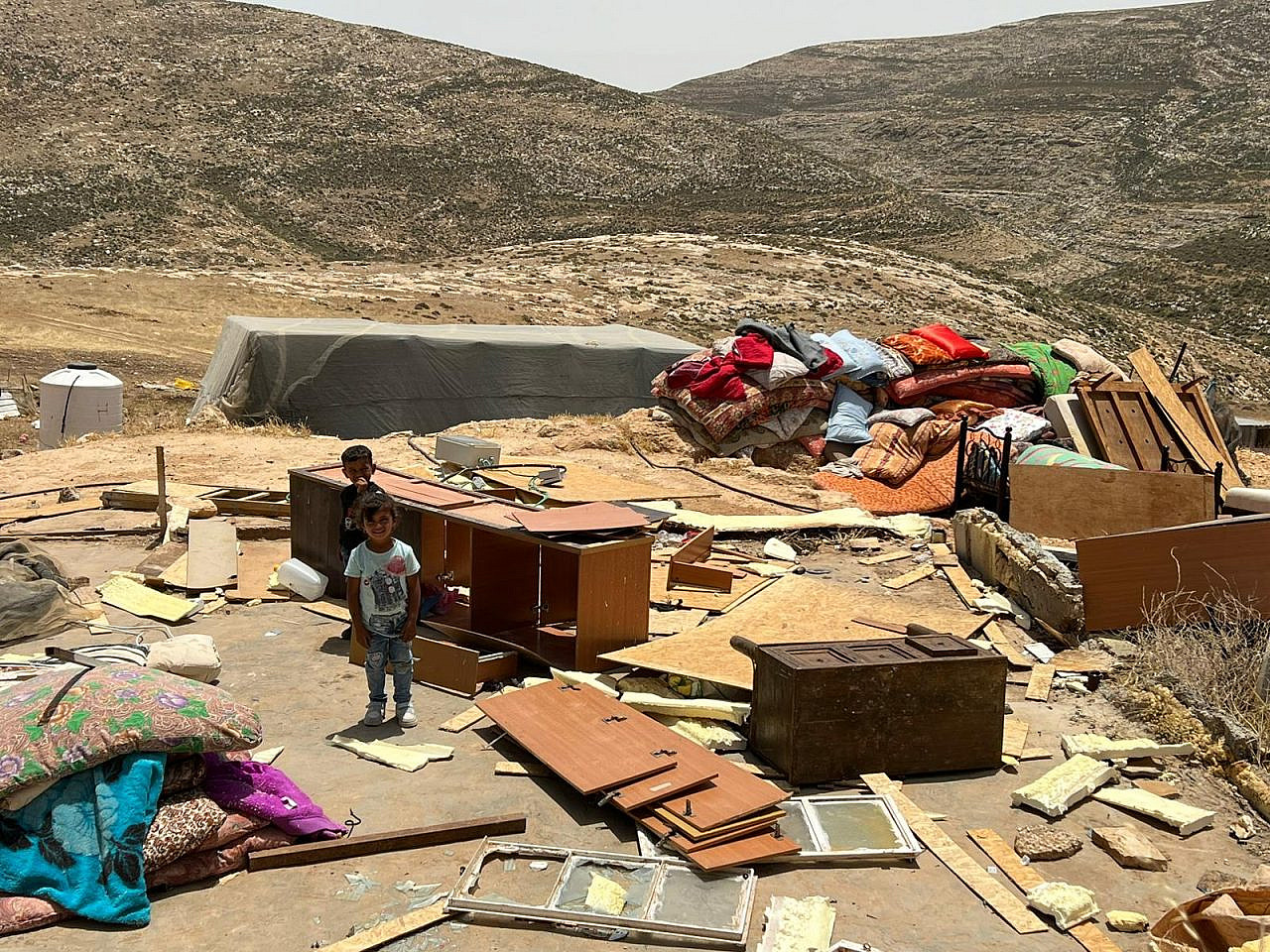
A man who was cutting through his roof with a saw looked at me and yelled: “Why are you taking pictures? What will that photo do to help us? Photographers have come and taken many photos in the last few years. They document how the military destroys our homes, how the settlers attack us, but no matter how much we scream and beg for help, the world sees it all but does nothing to stop it. The situation is only getting worse. Now we’ve decided to destroy our homes ourselves and to leave. Now the settlers will take the land, just like they wanted.”
Residents say they were compelled to leave after a fierce spate of violence over the previous five days, during which settlers attacked them at night, blocked the roads to the village, and threw stones at the old homes. The mental toll of the attacks, especially on the children, was the decisive factor in the residents’ choice to destroy the village and move away.
Amid the half-wrecked homes that lay in every corner of the village, I saw families packing their belongings into trucks. Little kids gathered their toys and books into piles while men and women packed their clothing, mattresses, and kitchen appliances into cars, and then destroyed the aluminum buildings and tents they have lived in for decades. I watched the village disappear before my eyes.
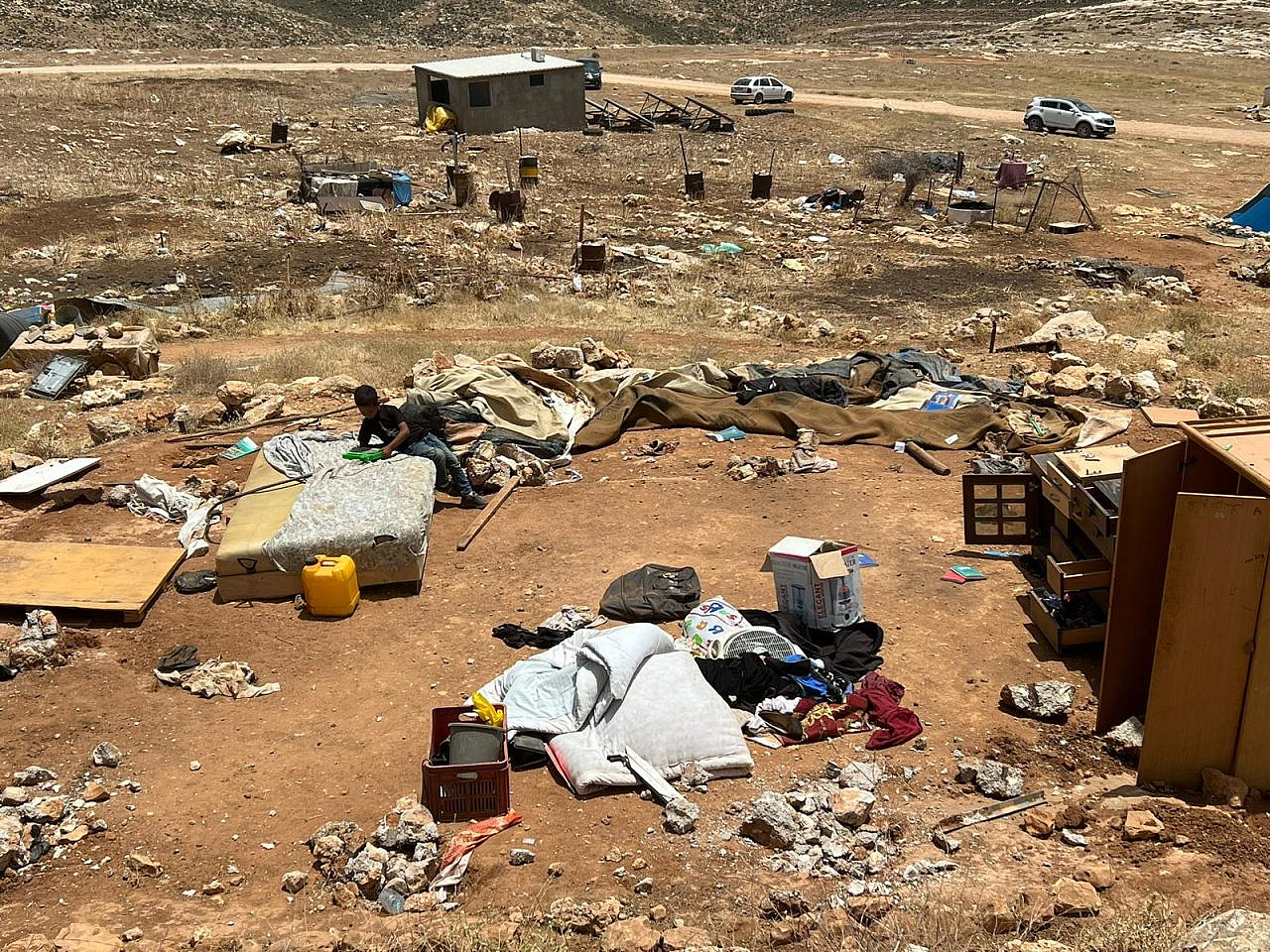
‘Ein Samia is located next to the Kochav HaShachar settlement and is east of Tzir Alon, an area settlers have been attempting to take over in recent years. It is one of 180 Palestinian villages in Area C of the West Bank that are “unrecognized” by the Israeli authorities and whose residents are denied permits for any construction or connection to basic utilities, like water and electricity.
The village residents, who largely earn their income from the sheep they graze, have lived in ‘Ein Samia since the 1980s. Since then, eight settler outposts have been built in the surrounding area, many of which are also primarily focused on shepherding. According to numerous testimonies, Israeli settlers from these outposts have been involved in dozens of violent incidents in recent years, and are responsible for the sharp spike in violence in this region of the West Bank.
‘No one could sleep at night’
According to Hazem Ka’abneh, a 26-year-old who was born and raised in ‘Ein Samia, numerous factors came together to pressure the village residents to leave: settler attacks, home demolitions by the Civil Administration (the Israeli military body that governs the West Bank), the ban on infrastructure development, and the effort to block residents from accessing their grazing land.
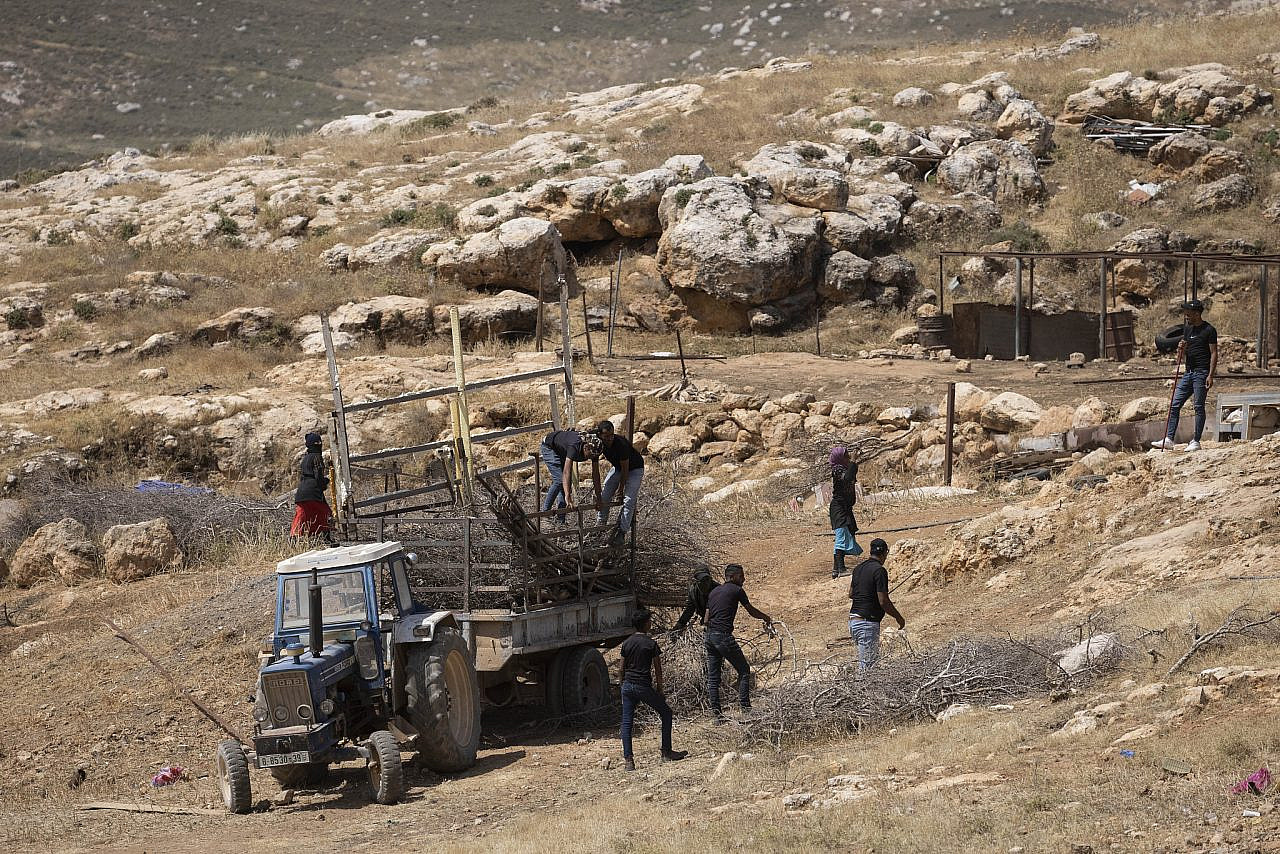
“In the last five days, settlers have gotten together late at night, and then invaded the village, throwing stones at our houses and our property. It was terrifying, especially for the women and children. No one could sleep at night.”
But these attacks, according to Ka’abneh, are only the most extreme manifestation of the sustained violence the community has experienced for years. “Before this, settlers would come at night, parking their cars at the entrance to the village. They blocked us from getting in or out, and they beat anyone who walked on the road,” he said.
“In addition to their violence, the military denies us building permits, and doesn’t let us connect to the water or sewage systems. It’s been like this since I was born,” Ka’abneh continued. “Again and again, they come to destroy our homes.” Data from the human rights group B’Tselem show that between 2019 and 2023, the army destroyed 18 structures in ‘Ein Samia, leaving 41 people –– among them 18 children –– without a roof over their heads.
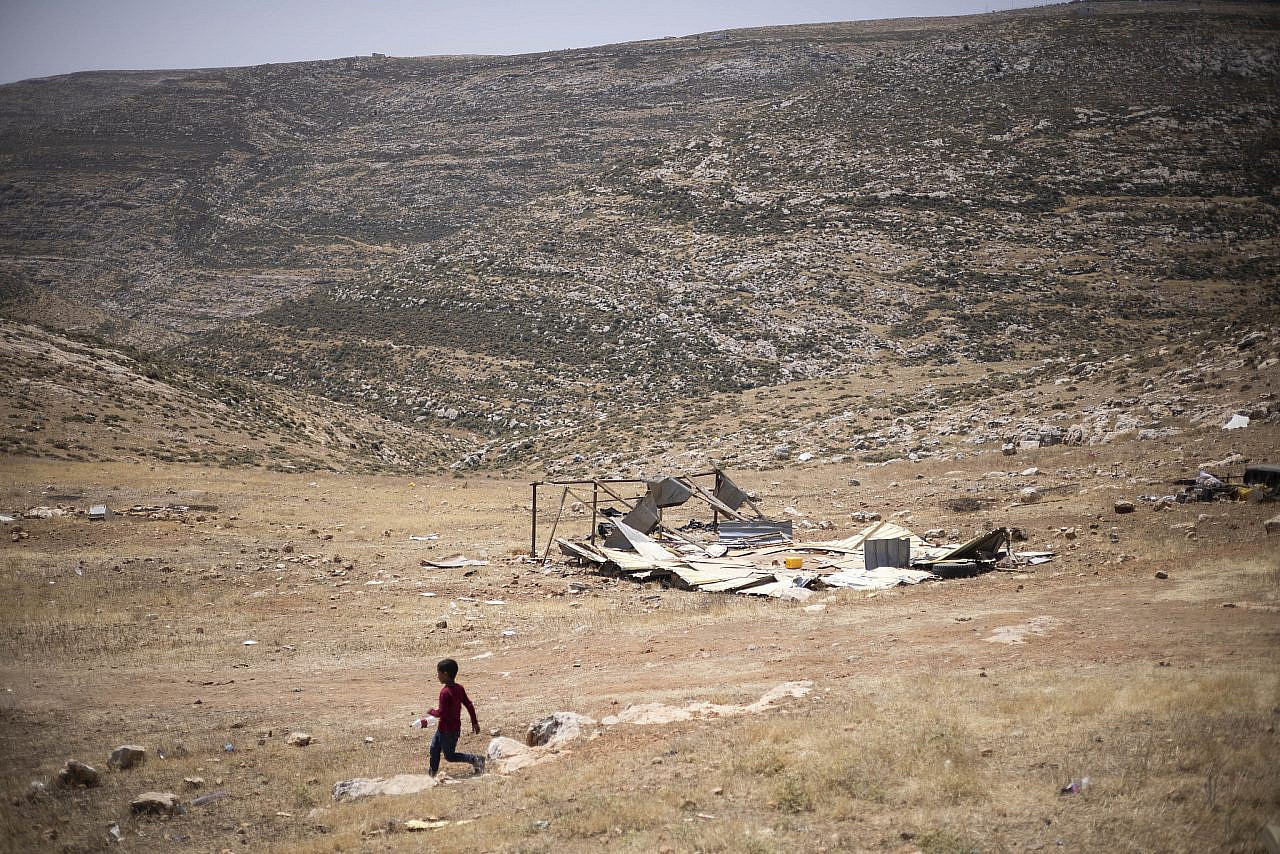
Last year, the Israeli military informed residents that it planned to demolish the new elementary school in the village, which is attended by children from kindergarten to 6th grade. Appeals by the residents to halt the demolition were rejected. Before the school was built last year, children were forced to walk several kilometers –– or find a ride, if they could –– to the nearest school in the village of Malik.
Most read on +972
“The State of Israel completely denies our existence,” Mohammed Haseen, the residents’ representative, said. “They destroy our homes, deny us electricity, and even tell us that they will demolish our elementary school. On the mountain across from the village, we can see the large houses made of concrete that belong to the settlers. We can see them from our tents and our houses made of trash. We can see that they get electricity and water and whatever they want from the state.”
According to Haseen, Israeli settler violence has increased significantly in the last few years as new outposts have been built. “Settlers have set up caravans on four hills in the area, and they have sheep on every hill, and they forcibly expel us from our grazing land, prevent us from making money, and attack our village. When the army comes, soldiers stand with them [the settlers] and arrest only the Palestinians. That’s how they tore us from our source of income and destroyed our community.”
On Monday morning, the first of the families decided to dismantle their homes and tents, and suddenly became refugees. I asked Hazem Ka’abneh where he was planning to go. “Every family is searching for a safer place, somewhere livable,” he replied. “There are families who packed their clothes and belongings into tractors, and they don’t know where to go. They’re looking.”


